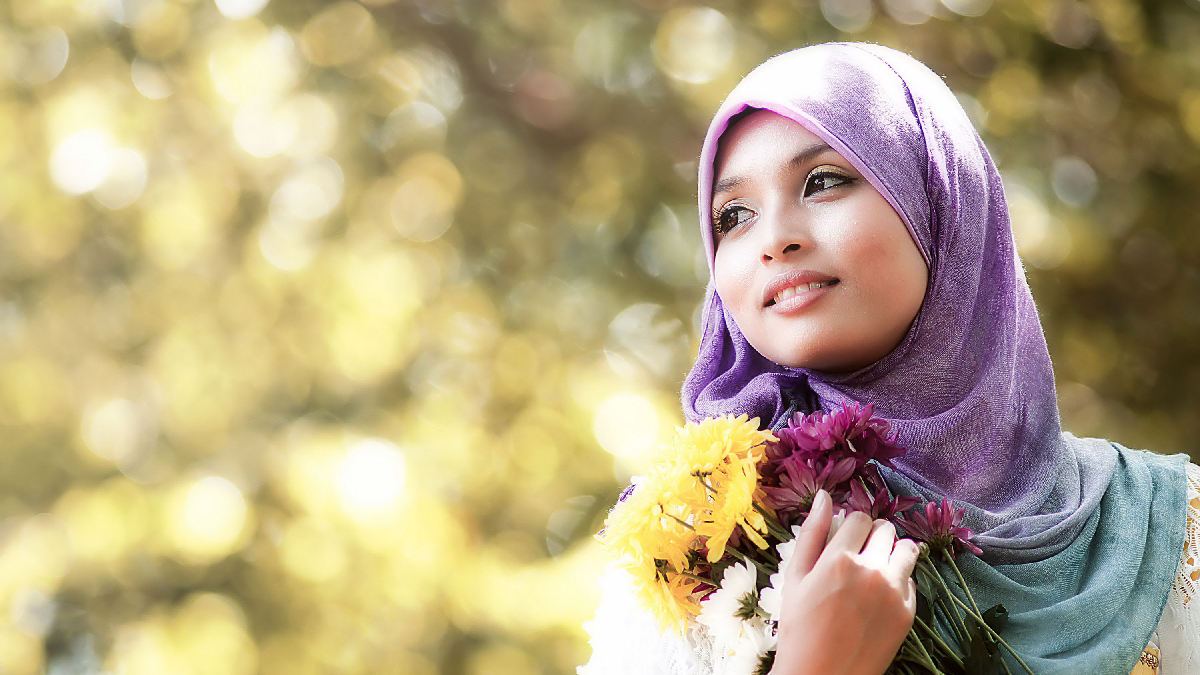Hijab, makeup, and henna. What are the rules for Muslim women in make-up and self-care

The laws of Saudi Arabia, Iran, Afghanistan, Iraq, Malaysia, and Sudan make it obligatory for Muslim women to wear the hijab. This is not mandatory in Ukraine and occupied Crimea.
Anastasia Rashko, a correspondent of Suspilne Crimea, learned what rules Muslim women have in make-up and self-care, and what traditions brides follow before the wedding.
According to the rules of Islam, modesty and traditionalism are valued in Muslim women in make-up and self-care. They use mainly natural care and decorative cosmetics. Instead of the usual facial tonic, a Muslim girl will prefer rose water. And when choosing decorative cosmetics - it is important that there were no alcohols in the composition.
Make-up artist Reihan Galazade talks about the rules of wearing the hijab among Muslim women.
“Muslim women in rural areas must have a hijab, they wear a scarf, and they can’t choose a lot of clothes. They pay attention to the beauty of the face and make-up”, - the make-up artist says.
Galazadeh says that European Muslim women use makeup more often because they do not have such religious restrictions.
“When I come to Ukraine, I see most Muslim girls from Europe, they do not have a mandatory hijab, they pay the most attention to the beauty of their hair and clothes. Muslim girls who go to Europe have very light make-up because they have less religious restrictions”, - she said.
According to the rules of Islam, men and women can use antimony, a powder of black stone, to which is added castor oil, and then it is used as an eyeliner.
To this day, this cosmetic remains popular in Eastern countries. Muslims believe it improves their eyesight.
The make-up artist showed how Muslim women usually put on makeup in countries with the mandatory wearing of the hijab.
“Feride has a bright skin tone, and we should also use a primer and foundation for makeup. The eyeliner is usually brown and the edge of the eye is always black. We put glossy and shiny colours in the centre of the eyelid”, - she said.
Mehendi expert Elmaz Selimshakh says that according to an old Islamic tradition, Muslim women arrange a ritual night of henna before the wedding, where they draw on each other’s hands henna patterns.
“Henna gedzhesi - a bridal shower where unmarried girls, sisters and representatives of the groom are invited. They also should bring henna. A respected woman - yenge is also invited. In the old days, they applied the pattern with sticks wrapped in pieces of cloth. These patterns were quite simple: a circle, a square, something simple, meaningful. The bride’s hair was dyed and the remains of the henna were sent to the groom. They also drew patterns on the hands of unmarried girls for their early marriage”, - she said.
Anna Rymarenko, a master and teacher of Mehendi, says that now it is difficult to find natural henna.
“One should be very careful because it is very difficult to find natural henna without toxic artificial ingredients. Colored, so-called henna, can cause chemical burns to the skin - and it’s no joke. The henna pattern remains on the skin for 7 -10 days”, - Rymarenko said.
Kateryna Yurchenko, a spokeswoman for the Spiritual Administration of Muslims, spoke about the mandatory rules of Muslim women. According to her, in the Muslim religion, it is important to remain yourself, not to mislead the environment.
“We do not change the shape of the eyebrows or the appearance. We can remove something extra on the nose bridge, but we do not touch the eyebrow itself. If a woman is married, she should consider her husband’s opinion about makeup. It is very important if she wears makeup at home or when she goes out. If a girl is not married, then she should pay attention to the opinion of her parents about this”, - Yurchenko said.
Unmarried girls can only apply bright makeup for themselves, but if a girl has the goal of seducing someone, it is haraam.







